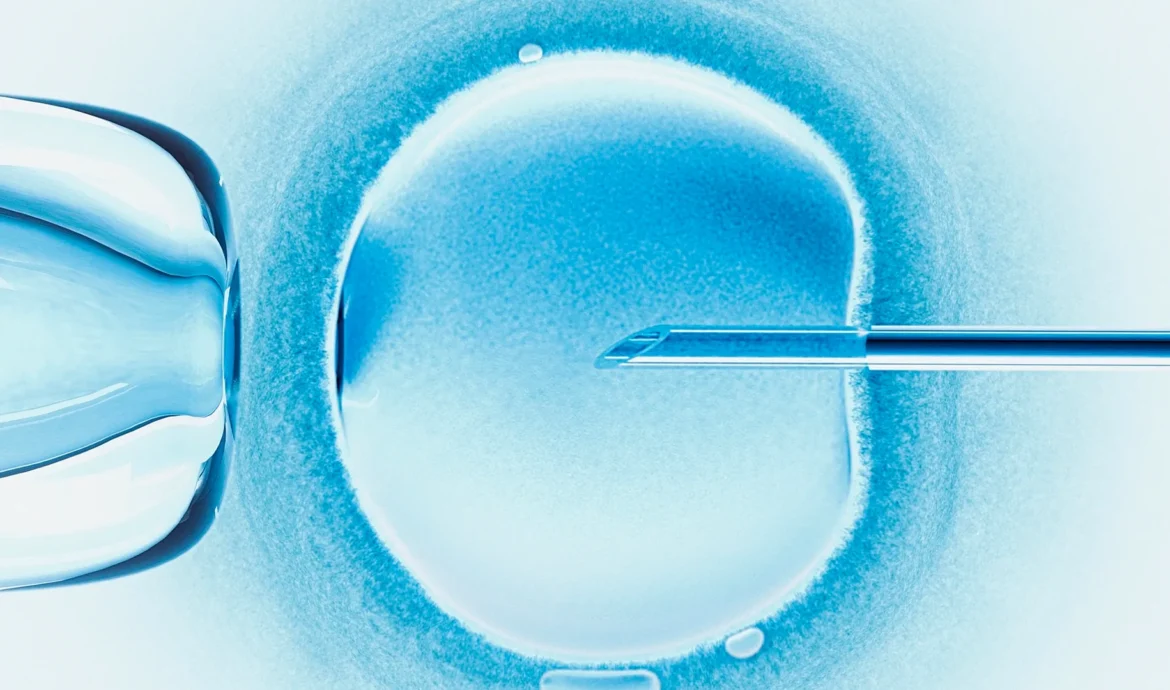
The Right to Have Children: How the Dobbs Decision Spilled Over into IVF
November 20, 2024Feature Article(Source)
The End of Roe v. Wade
On June 24, 2022, the Supreme Court overturned Roe v. Wade, a landmark decision from 1973 that protected the constitutional right to abortion. Roe relied upon the right to privacy to argue that termination of a pregnancy is a private, individual decision. In 2022, Roe v. Wade was replaced by Dobbs v. Jackson Women’s Health Organization, which found that abortion was not federally protected and instead should be left up to state legislatures. Although Dobbs focused on the right to abortion, Dobbs quickly destabilized all aspects of reproductive healthcare, including IVF.
Advocates for reproductive freedom had expected challenges to abortion rights and access to birth control after Dobbs, but the end of Roe affected reproductive healthcare more broadly. Since Dobbs, the medical process of in vitro fertilization (IVF) has come into question. How the courts went from removing the right to end a pregnancy to questioning the right to get pregnant can only be understood by looking at the connection between religion in the United States and reproductive healthcare.
Religion and Reproductive Healthcare in the U.S.
The first abortion bans in the United States came into existence in the 19th and 20th centuries. These bans were attempts to “professionalize” gynecology and were not based on religious ideas about abortion. By contrast, modern legal debates regarding reproductive healthcare revolve around religious ideas about life and conception. For example, in the 2014 case, Burwell v. Hobby Lobby Stores, Inc., the Supreme Court found that private companies do not have to include contraception in an employee’s health coverage if doing so would go against the religious beliefs of the company’s owners. The case focused on Hobby Lobby’s opposition to any form of birth control that could prevent the implantation of a fertilized egg, including IUDs. Hobby Lobby argued that these methods of contraception went against their religious beliefs because they did not believe in abortion. However, doctors do not classify IUDs as abortifacients because they work before implantation and abortion can only occur after implantation.
This distance between the religious and medical views of abortion has created a legal battle between the two, and the religious views are winning in the minds of Americans. When Dobbs replaced Roe in 2022, states had more leeway to apply religious ideas through legislation and judicial decisions. Religious ideas about when “life” begins are present in so called “fetal-personhood laws” which determine when a fetus gains personhood and therefore protection under the constitution. In some states like Georgia, fetal personhood begins as early as six weeks gestation. Other states have attempted to pass bills that recognize personhood at the moment of conception, even before implantation. As personhood laws apply constitutional protections earlier and earlier in a pregnancy, the laws start to affect reproductive healthcare beyond abortion and contraception.
IVF After Dobbs
In February 2024, the Alabama Supreme Court handed down a case that gained national attention. To perform IVF, doctors create fertilized eggs in a lab then implant the embryos inside a person’s uterus. Not all fertilized eggs are implanted. Instead, the extra embryos are frozen, and not all survive this freezing process. In LePage v. Center for Reproductive Medicine, P.C., the Alabama Supreme Court held that frozen embryos prepared for IVF were covered under the state’s Wrongful Death of a Minor Act. The ruling meant that fertilized embryos had fetal personhood, even when they are not inside a uterus. The decision led to many doctors refusing to provide IVF treatments for women who wanted to get pregnant out of fear that they could be sued for the death of a minor whenever frozen embryos did not survive.
Even though Alabama lawmakers passed legislation to prevent liability for doctors who provided IVF services, the Alabama Supreme Court’s decision still revealed the influence of religious ideas about conception on legal decisions. The court cited the Bible in its opinion, stating that the people of Alabama “believe that each human being, from the moment of conception, is made in the image of God, created by Him to reflect His likeness.” The court also used direct quotes from the Bible, the works of religious figures like Augustine, and the Ten Commandments to support its finding that life begins at conception. The decision alerted legal scholars concerned with the separation of church and state, but it also raised questions about the future of IVF.
The future of IVF protections is unknown. The majority of Americans support IVF, according to a recent Pew Research Center study. However, the incoming administration has expressed inconsistent views about protecting the right to IVF. President-elect Donald Trump has referred to himself as “the father of IVF,” the meaning of which is unclear, whereas vice president-elect J.D. Vance previously refused to support legislation protecting IVF. Project 2025, a conservative initiative published by the Heritage Foundation and supported by MAGA republicans, also supports a religious view of personhood, arguing that personhood begins at conception. With this inconsistent messaging from MAGA republicans, it is difficult to say whether IVF is on the chopping block in the future. However, some religious communities in the United States have made their stance on IVF very clear. Southern Baptists, who believe that personhood begins at conception, voted to oppose IVF and asked the U.S. government to take action against IVF in June 2024.
By overturning Roe, Dobbs went beyond revoking the right to abortion. While advocates expected Dobbs to affect the right to contraception, it came as a surprise to many when some courts extended Dobbs to IVF. However, an understanding of the growing role of religion in debates about reproductive healthcare draws a direct connection between the overturning of Roe and the current threat to IVF.
Suggested Citation: Johanna Hussain, The Right to Have Children: How the Dobbs Decision Spilled Over into IVF, Cornell J.L. & Pub. Pol’y, The Issue Spotter, (Nov. 20, 2024), https://jlpp.org/the-right-to-have-children-how-the-dobbs-decision-spilled-over-into-ivf/.

Johanna Hussain is a second-year law student at Cornell Law School. She graduated from the University of Wisconsin-Madison with a degree in History and International Studies in 2022. In addition to writing for Cornell’s Journal of Law and Public Policy, she is also an associate on the LII Supreme Court Bulletin and is a member of Cornell’s Gender Justice Clinic.
You may also like
- November 2024
- October 2024
- April 2024
- March 2024
- February 2024
- November 2023
- October 2023
- April 2023
- March 2023
- February 2023
- January 2023
- December 2022
- November 2022
- October 2022
- May 2022
- April 2022
- March 2022
- February 2022
- January 2022
- December 2021
- November 2021
- October 2021
- May 2021
- April 2021
- March 2021
- February 2021
- January 2021
- November 2020
- October 2020
- September 2020
- August 2020
- July 2020
- June 2020
- May 2020
- April 2020
- March 2020
- February 2020
- January 2020
- November 2019
- October 2019
- September 2019
- April 2019
- February 2019
- December 2018
- November 2018
- October 2018
- September 2018
- March 2018
- February 2018
- January 2018
- December 2017
- November 2017
- October 2017
- September 2017
- May 2017
- April 2017
- March 2017
- February 2017
- December 2016
- November 2016
- October 2016
- April 2016
- March 2016
- February 2016
- January 2016
- December 2015
- November 2015
- October 2015
- June 2015
- May 2015
- April 2015
- March 2015
- February 2015
- January 2015
- December 2014
- November 2014
- October 2014
- August 2014
- March 2014
- February 2014
- January 2014
- December 2013
- November 2013
- October 2013
- September 2013
- May 2013
- April 2013
- March 2013
- February 2013
- January 2013
- December 2012
- November 2012
- October 2012
- September 2012
- June 2012
- April 2012
- March 2012
- February 2012
- January 2012
- December 2011
- November 2011
- October 2011
- September 2011
- August 2011
- April 2011
- March 2011
- November 2010
- October 2010
- September 2010